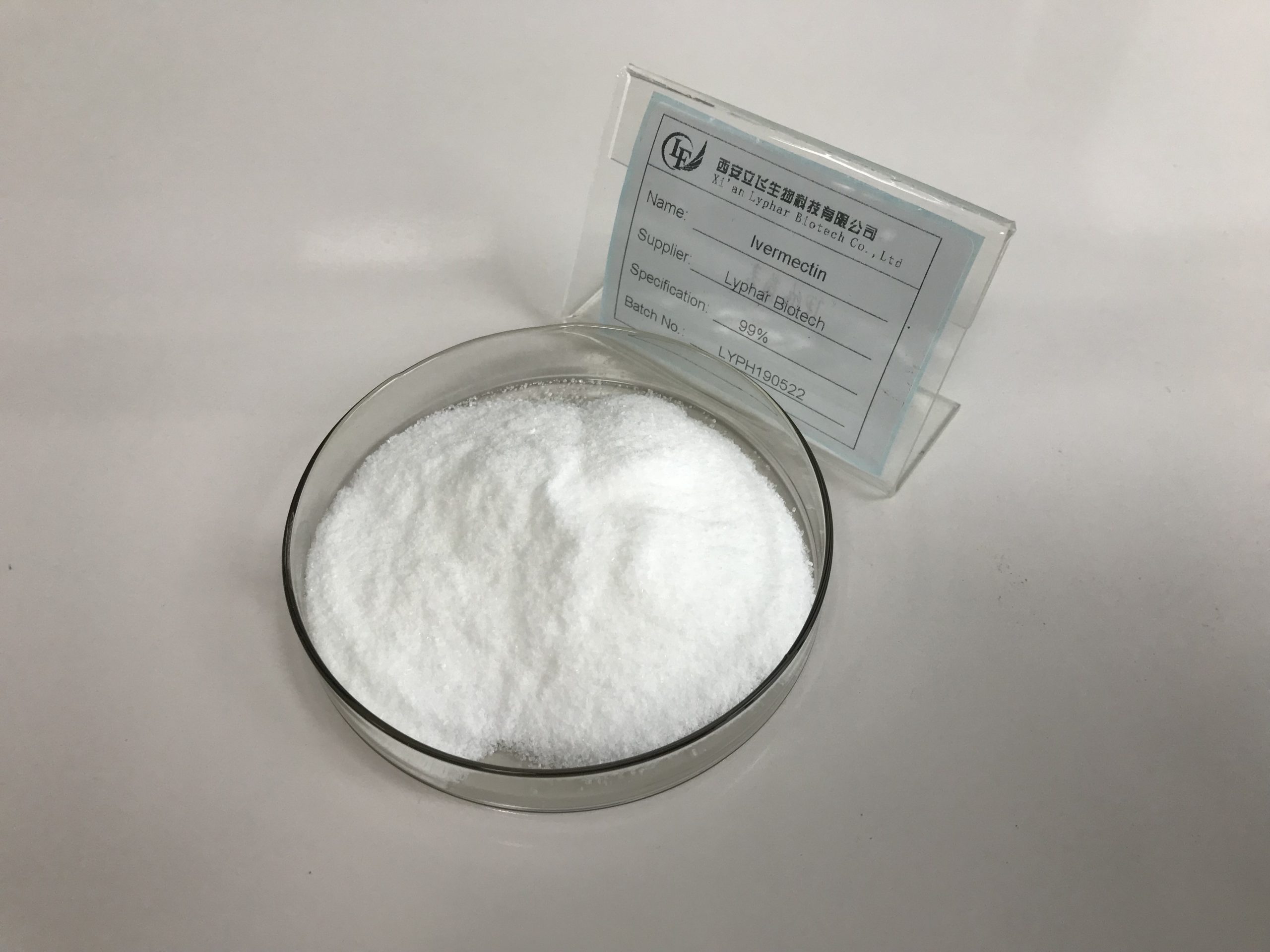Ivermectin is an antiparasitic medication widely used to treat a variety of parasitic infections in both humans and animals. It belongs to a class of drugs known as macrolides and works by interfering with the nervous system of the parasites, leading to their paralysis and death.
Key Information:
1.Uses in Humans:
- Onchocerciasis (river blindness): A parasitic infection caused by Onchocerca volvulus.
- Lymphatic filariasis: Caused by filarial worms.
- Strongyloidiasis: A parasitic infection caused by Strongyloides stercoralis.
- Scabies: An infestation of the skin by the mite Sarcoptes scabiei.
- Head lice: Infestation by lice.
- Other parasitic infections: Including certain types of roundworm infections.
2. Mechanism of Action: Ivermectin binds to specific chloride ion channels in the nervous and muscle cells of parasites, increasing permeability to chloride ions, which causes paralysis and eventually the death of the parasites.

3. Dosage and Administration:
- Ivermectin is typically taken orally, though it can be applied topically for certain conditions (e.g., scabies).
- The dosage depends on the condition being treated, the weight of the patient, and other factors. It is generally taken as a single dose or a series of doses, depending on the infection.
4. Side Effects: Common side effects include dizziness, nausea, diarrhea, fatigue, and skin rash. Serious side effects are rare but can include severe allergic reactions, neurological problems, and in some cases, eye damage in people with onchocerciasis.
5. Safety and Precautions:
- Ivermectin is generally well tolerated but should not be used in individuals with certain conditions, such as severe liver disease or a history of allergic reactions to the drug.
- It is important to consult a healthcare provider before using it, especially for those with compromised immune systems.
6. Use in Veterinary Medicine: Ivermectin is commonly used in animals to treat various parasitic infections, including those caused by heartworms, gastrointestinal worms, and external parasites like mites, ticks, and lice.
7. COVID-19 and Ivermectin: During the COVID-19 pandemic, ivermectin was controversially investigated for its potential to treat or prevent the virus. However, the World Health Organization (WHO) and the U.S. FDA have advised against using ivermectin for COVID-19 outside of clinical trials due to insufficient evidence of efficacy.
8. Formulations: Ivermectin is available in various forms, including oral tablets, topical creams, and injectable solutions for animals.

Pharmacokinetics:
- Absorption: Ivermectin is well absorbed from the gastrointestinal tract, with peak plasma levels occurring 4–5 hours after oral administration.
- Metabolism: It is metabolized in the liver and excreted mainly through the feces.
- Half-life: The half-life of ivermectin is approximately 18 hours.
Regulatory Status:
- FDA Approval: Ivermectin is FDA-approved for treating specific parasitic infections in humans and is available in the U.S. by prescription.
If you’re considering using ivermectin for any purpose, it’s best to consult a healthcare provider to ensure it’s appropriate for your condition.
